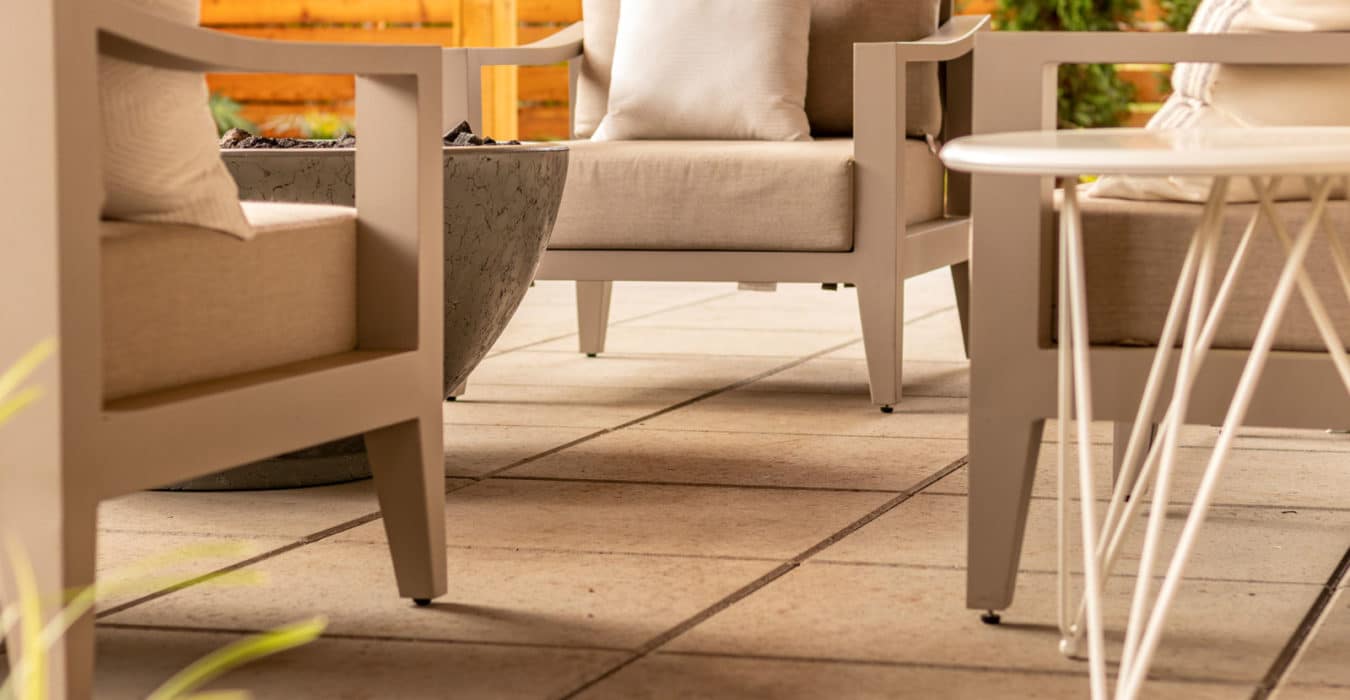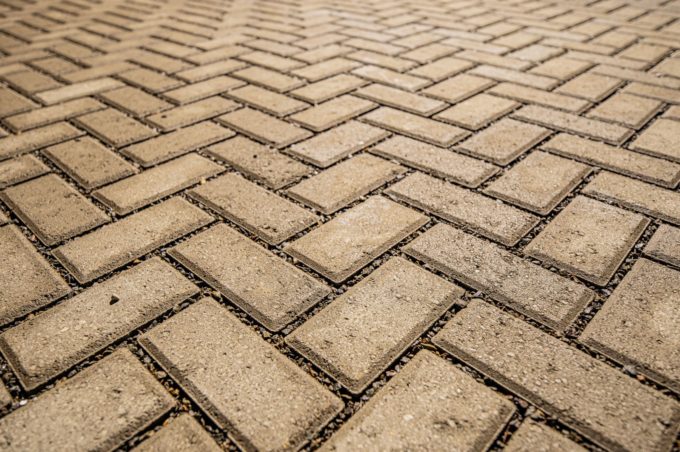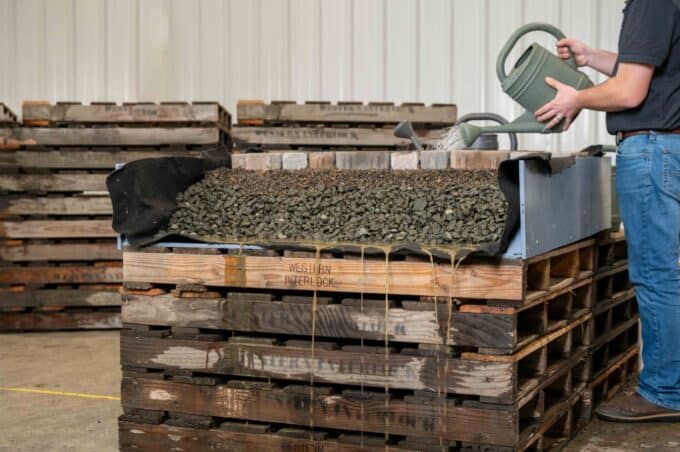Are you attracted to the look and design but unfamiliar with them? If so, you’re in the right place.
In this article, we’ll thoroughly examine how to use pavers to make a patio, pavers for steps, pavers for a walkway, and much more. We’ll look at the different use cases for concrete, brick, and stone pavers so you can be informed about how they could benefit your dream landscape.
How to use concrete pavers
First, let’s look at the most basic type of paver: concrete pavers. Concrete pavers vary in density, from durable to permeable. They can be used in various applications, depending on what you need.
Concrete pavers are popular because they are available in so many different styles. You can easily custom order them to fit perfectly in whatever landscaping style you have in mind.
Concrete pavers can be used in many different places and spaces. Here are several examples of areas in which they are most commonly used:
Concrete is perfect for patios
Concrete pavers create beautiful gathering atmospheres. You can use them for large and small patios and even create a fire ring inside the patio—from the same pavers!
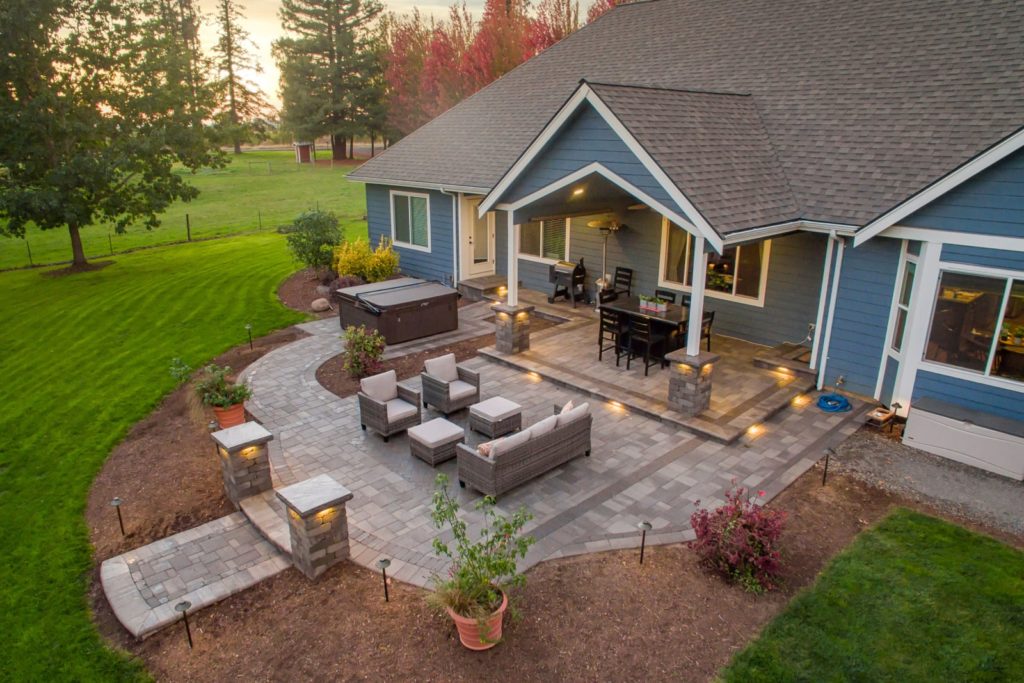
Pavers for walkways
Paths and walkways often add necessary charm to a landscape. Concrete pavers are perfect for creating those inviting places to walk.
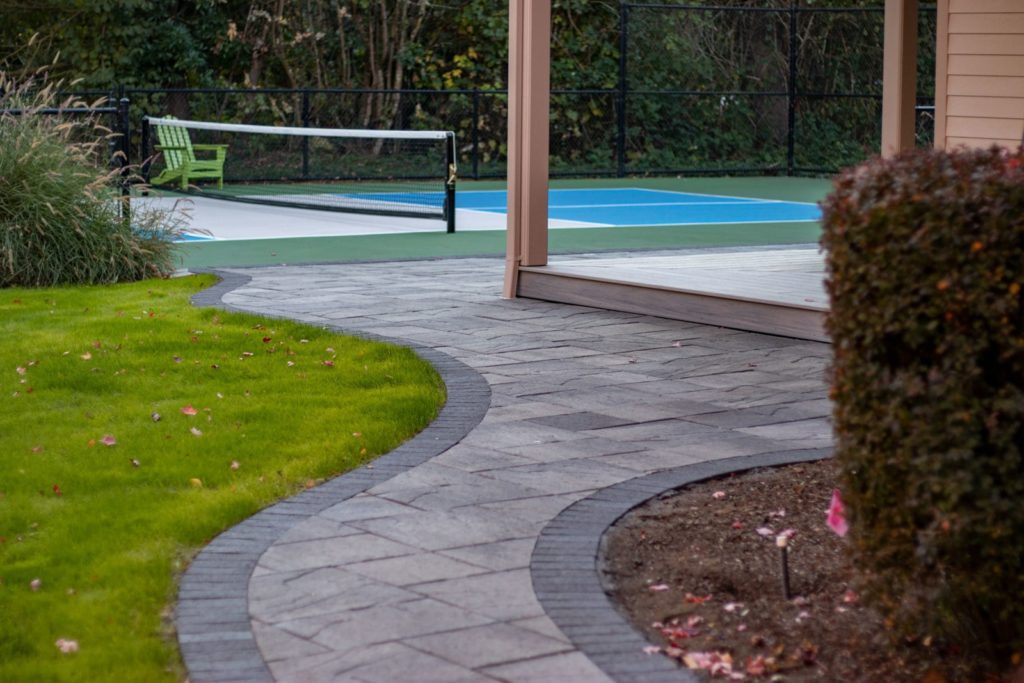
Driveways look beautiful
Yes, you can even use concrete pavers for large spaces! Pavers can make your driveway more pleasant, improve its eye appeal, and make a nice recreation area for your children or grandchildren.
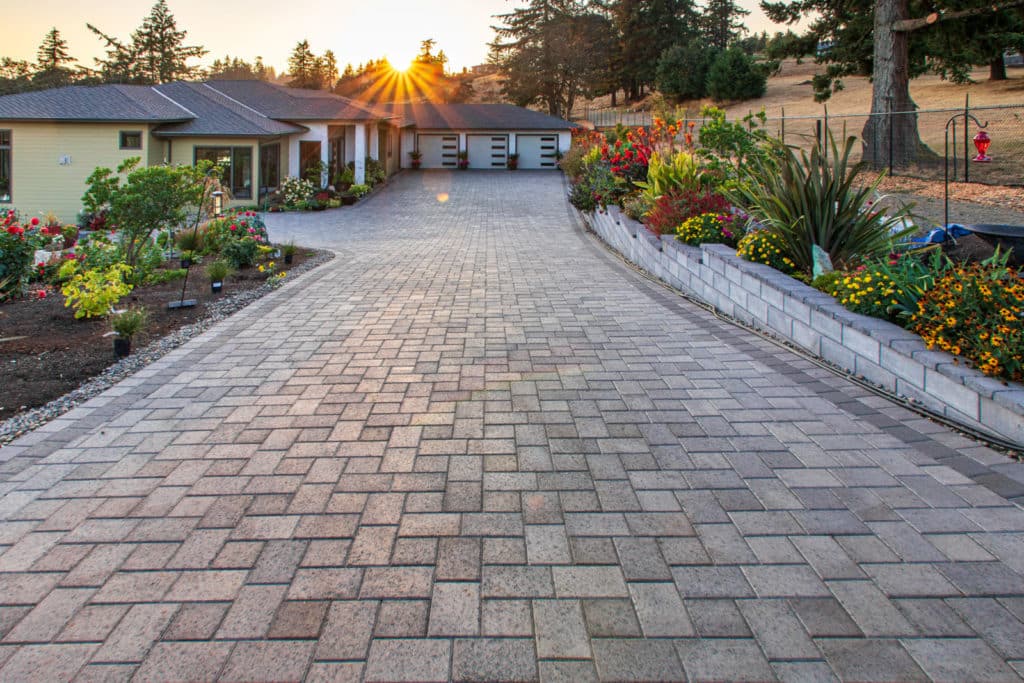
Steps are easy to create
Concrete pavers can make those steps if you need a new set of steps leading up to your porch or a different level in your yard. You can choose wide, narrow, large, or minor, depending on what works best.
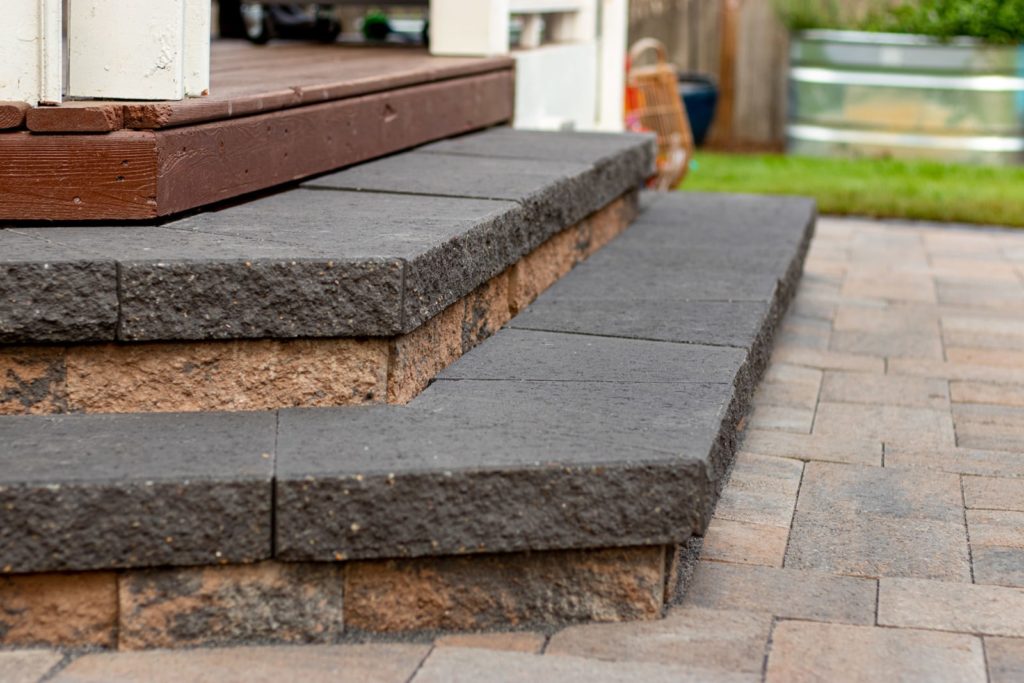
They’re an excellent option for pools
Installing a pool? Concrete pavers are ideal for laying as the pool edge. They ensure a sleek and inviting look and feel.
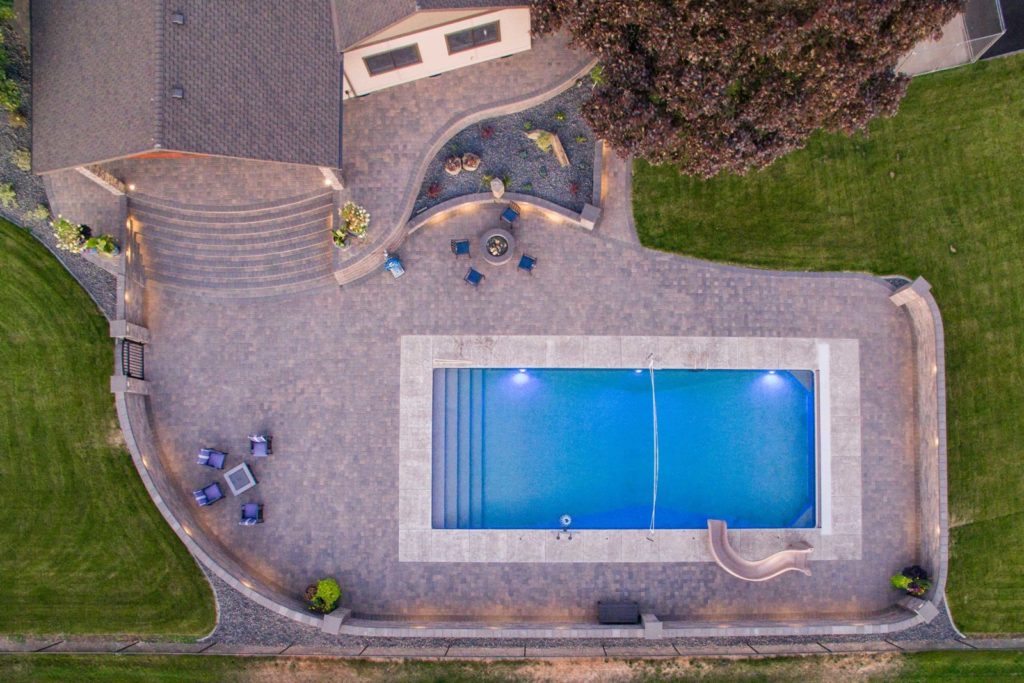
Garden walls go up quickly with concrete
Another widespread use of concrete pavers is in garden walls. They make a lovely edge or divider for your gardens or flower beds.
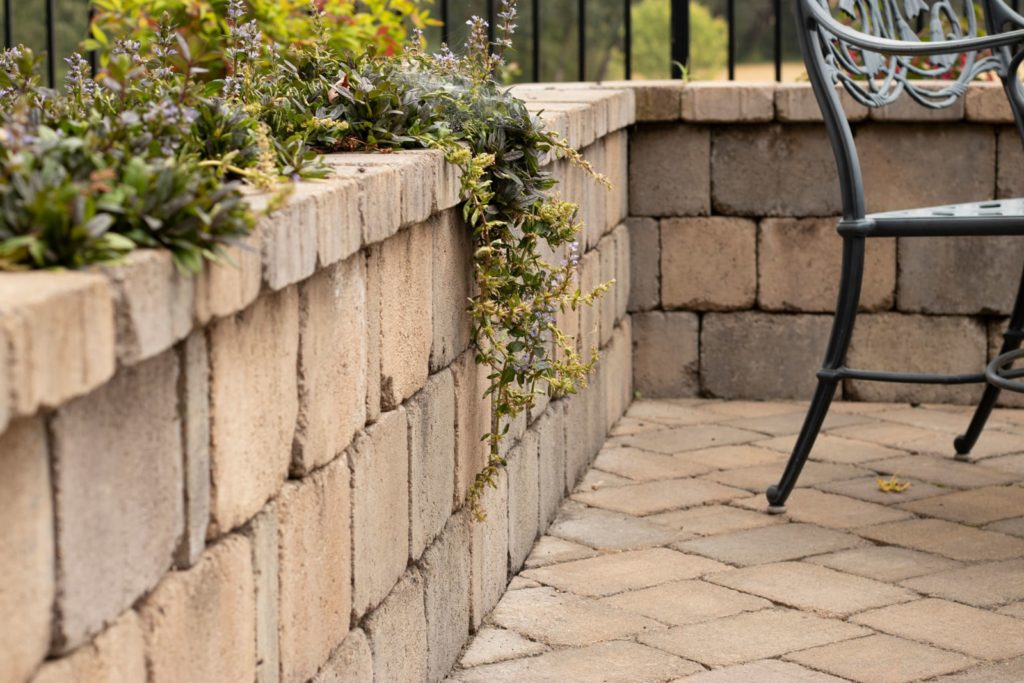
Concrete planters last forever
Like garden walls, concrete pavers can also be used as planters, creating an elevated look for your plants and flowers.
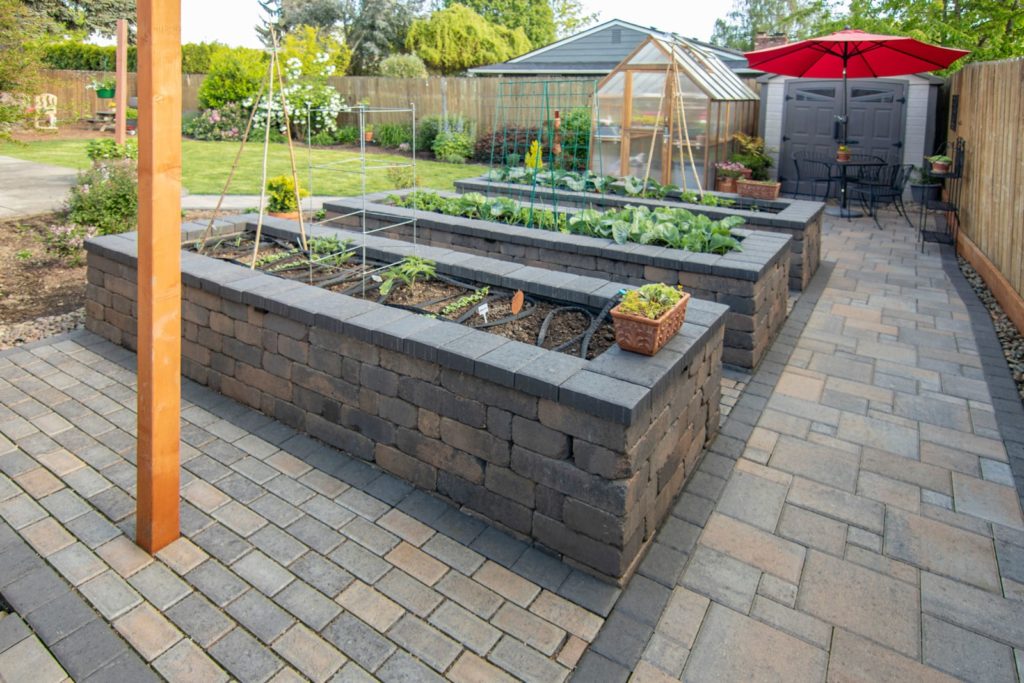
If you’re unsure whether you want to invest in pavers, knowing they could damage or break, you should know that Western Interlock concrete pavers are guaranteed for life! We want to make sure you are satisfied with your concrete pavers long-term. Learn about our guarantee.
How to use brick pavers
Durable and long-lasting
Brick pavers are ideal in places and formats that require durability and strength. The brick industry estimates, rather conservatively, that bricks will last forty years. However, brick paver sidewalks in colonial-era cities have been in service under constant traffic for nearly 150 years.
Like concrete pavers, brick pavers can be used in various applications.
Chimneys
We’re all familiar with the classic brick chimney. The brick’s durability makes it perfect for use in high-use, high-heat environments.
Garden walls
Brick pavers can also be used for garden walls. They bring a classic and homey edge to gardens.
Siding
Brick is always an option if you want to side your new house or remodel. It signals endurance—and is sure to endure.
Driveways
Brick pavers can also be used for driveways. If that is your ideal style, a brick driveway will solidify a classic, old-town look.
Walkways
Finally, brick pavers can be used for paths and walkways through your yard or garden. Brick paver paths will surely bring a restful charm to whatever space you install them.
How to use stone pavers
The last type of paver available is a kind made from natural stones.
Stone pavers are a flawless choice for any area requiring a hardscape that needs to be both beautiful and permeable. The absorbent quality of natural stones makes them a frequent choice for pool decks and other pool areas.
However, natural stone is not ideal for more highly trafficked areas such as driveways. Natural stones can break under pressure.
Walkways
Stone pavers are often used for walkways. While they do not respond well to heavy pressure, light foot traffic is usually not a problem.
Pool decks
Again, natural stone pavers are ideal for pool decks. Their permeability makes them quickly absorb the splashing and dripping that usually comes with a family pool area.
Patios
Similar to walkways, natural stone pavers work very well in patios. Their luxurious look and feel will glamorize any outdoor gathering space.
Which paver meets your needs?
Now that you are familiar with the different pavers, let’s look at how to know which type is best for you.
Concrete
Concrete pavers are your best choice if you want the most flexible option. They are durable and long-lasting and can be used in almost any application. Concrete pavers are used everywhere, from those with light foot traffic to commercial parking lots.
Their flexibility is ideal if you want your hardscape to be the same from your driveway to your doorstep.
Brick
Brick pavers are little troopers. The brick will outlast almost everything if you expect direct, intense sunlight and heat or moisture.
Beauty is in the eye of the beholder, and brick can be beautiful, especially if it is marbled with lighter clay. Most people say that brick is best for siding and chimneys, but it provides a classic look in many applications.
Stone
Natural stone pavers are perfect if you are primarily interested in their beauty and know they will be lightly treading upon. Stone pavers make gorgeous walkways and truly radiate their natural beauty.
As long as you know not to implement them in an area with anything other than foot traffic—such as a driveway or an RV pad—you will most likely be pleased with the results of using stone pavers.
Download the paver project planning guide
If you are ready to start your paver project, we have a guide that might help. Download our free Project Planning Guide so you can be prepared before you start your project.


